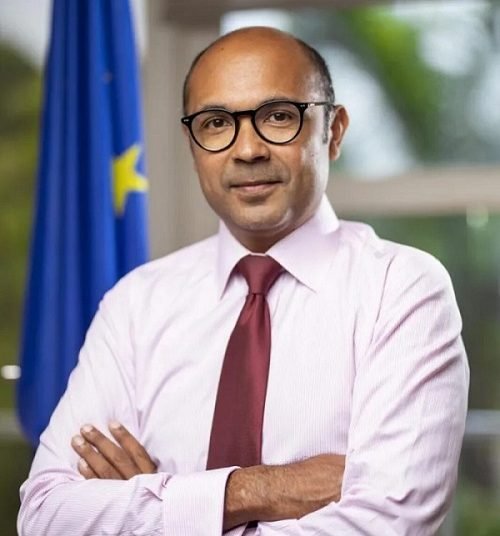The Head of European Union (EU) Mission to Ghana, Irchad Razaaly, has indicated that EU-Ghana Economic Partnership Agreement (EPA) can serve a relevant instrument in furthering the country’s ambition of becoming a regional and continental trade hub.
This, he said, can be achieved when Ghanaian companies and businesses take advantage of enormous opportunities the agreement presents, such as enabling the importation of cheaper machinery from Europe into Ghana.
“Indeed, the EPA places Ghana in an ideal situation to take advantage of the market opportunities on the African continent.
It enables Ghanaian businesses to import quality machinery at a cheaper price from Europe to be used for processing made-in-Ghana products destined for the African market.
The EPA can, therefore, be instrumental in furthering Ghana’s ambition to become a regional and continental trade hub,” he said.
The ambassador made these remarks at a seminar in Accra aimed at highlighting the opportunities and challenges for businesses under the EU-Ghana interim Economic Partnership Agreement (iEPA).
Mr. Razaaly added that the event forms part of EU’s initiatives to increase public knowledge of the benefits of the agreement and also to encourage more Ghanaian firms to take part in its efforts to strengthen economic ties between Ghana and the EU.
The EU-Ghana interim Economic Partnership Agreement (iEPA) is a trade and development agreement with the goal of boosting commerce and removing trade obstacles, particularly the tariffs placed on imports of goods from the EU and Ghana.
Signed in 2016, the Agreement covers trade in goods and provides Ghana-made products with duty-free quota-free access (with the exemption of rice, sugar and arms and ammunitions) to the EU market in exchange for 80 percent gradual asymmetrical liberalisation of tariffs for EU exports to Ghana.
Ghana’s exports to the EU are predominantly energy and agricultural products, with raw and processed cocoa being the main agricultural exports, followed by tropical fruits. Data shows that cocoa products now account for about 40 percent of the overall value of Ghanaian cocoa exports to the EU. The key EU markets for Ghana’s exports are the Netherlands, France Italy, and Germany.
The Deputy Minister of Trade and Industry,Ghana Herbert Krapa during his presentation at the conference emphasized that the country aggressively advertise its unconventional exports and make ongoing efforts to enter the EU markets with a more varied portfolio of goods.
He reaffirmed the government’s commitment to enhancing trade relations with the EU and urged companies to leverage on the deal to increase exports to the EU in order to revive the faltering national economy.






























































